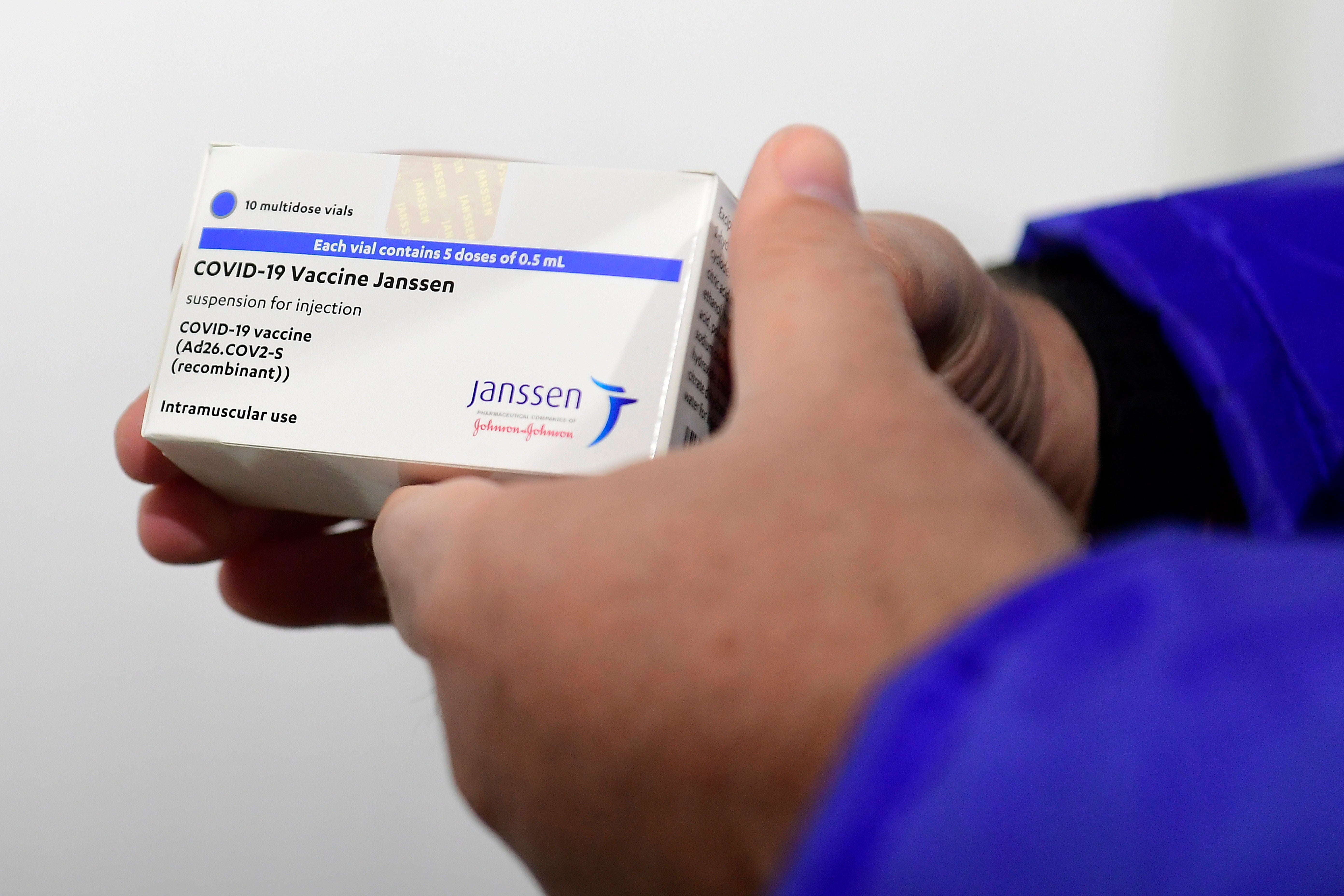Europe scrambles as J&J vaccine delay deals another blow
European nations are scrambling in the wake of Johnson & Johnson's delay of the rollout of its COVID-19 vaccines amid reports of very rare blood clots

Desperate to jumpstart Europe s sluggish vaccination program, leaders from across the continent scrambled Wednesday in the wake of an unexpected delay in the rollout of Johnson & Johnson's COVID-19 shots amid reports of very rare blood clots.
While some European Union countries opted for caution, Poland said that it would go ahead and administer the first batch of 120,000 doses that had arrived. Others like Spain and Portugal were left without a choice: They are still waiting for their first deliveries.
The Johnson & Johnson vaccine, distributed in Europe by its subsidiary Janssen, is a key part of the continent's immunization campaign. Of the four vaccines currently approved in the EU, it is the only one that requires just a single dose to be fully effective. That makes it ideal for hard-to-reach, vulnerable groups, such as those who are homeless or migrant workers.
But the drug maker decided Tuesday to delay deliveries to Europe after the American regulator recommended a pause in the vaccine's use in the United States while the rare clot cases are examined. That is only the latest blow to the vaccine rollout in Europe, which had already experienced a similar blood clot scare with the AstraZeneca vaccine, also critical to its campaign.
It’s not clear if the exceedingly rare reports in the U.S. — so far, six cases out of about 7 million inoculations — really are linked to the vaccine. But European regulators already have declared that the unusual type of clots are possibly linked to the AstraZeneca shot, which is made in a similar way and is in wide use around the globe, though not yet in the U.S. Several countries have imposed restrictions on how AstraZeneca is used because of the clot concerns.
Still, experts agree COVID-19 poses a much larger risk of death and hospitalization than the potential threat of atypical clots. But the concerns could still undermine public confidence in these vaccines and in the entire vaccination effort.
On Wednesday, advisers to the U.S. Centers for Disease Control and Prevention will debate how to handle the Johnson & Johnson vaccine. The European Medicines Agency, which approved the vaccine last month, has yet to react to its counterpart's move across the Atlantic.
For Poland, that means there is no reason to wait.
“In line with these recommendations (by the EMA), we will want to use it in inoculations,” Polish Health Minister Adam Niedzielski said.
Other countries, however, decided to hold up.
Italian Health Minister Roberto Speranza said that his government was waiting for further information from the U.S. Food and Drug Administration and EMA to decide how to proceed with the initial 180,000 doses that arrived Tuesday.
“But I think this vaccine must be used because it’s an important vaccine and the U.S. decision was a precautionary one, and the choice of Johnson & Johnson to not immediately put it on the market in Europe was also a precautionary choice," Speranza said.
“Our hope is that these knots can be resolved as soon as possible so we can use this vaccine, which would be the fourth one and is particularly useful for us.”
Denmark took the first 38,000 doses off a truck and put them in a freezer, while Croatia put the 7,000 shots it has received so far in storage until further notice.
South Africa has also suspended the shot as a “precautionary measure.”
The European Union has for weeks been looking at Britain with envy as the vaccination program of the former bloc member outpaced its own.
The J&J shot was supposed to help it play catch-up.
Under a contract with the European Commission, 200 million doses were supposed to arrive in the second quarter of this year. That deal allowed for the purchase an additional 200 million doses.
Despite the delay in deliveries, Spanish Prime Minister Pedro Sánchez said the EU was still on track to vaccinate 70% of adults by the end of the summer. Spain — which was supposed to receive an initial shipment of 300,000 — planned to use the shots to target groups that have been missed by its campaign so far, including the homeless and migrant workers. Portugal was also left without 30,000 doses.
Austrian Chancellor Sebastian Kurz also downplayed the impact of the delay that came hours after the first doses were delivered to his country.
“I can only tell you that, with the more than 8 million doses we will have delivered by the summer … we will be able to able to offer everyone a first dose. I said at Easter within 100 days, and from today’s point of view I would stick to that,” Kurz said.
The trouble with Johnson & Johnson comes after various delays in shipments of other vaccines to Europe and similar trouble with AstraZeneca that led countries to suspend its use and then finally impose a dizzying array of age restrictions on it. Spain, for instance, went from using AstraZeneca on young people at first, to now only giving it those between 60-69. Denmark decided Wednesday not to resume use of AstraZeneca after putting it on hold last month.
In a rare bit of good news for the bloc's vaccination campaign, EU Commission chief Ursula von der Leyen announced Wednesday that the bloc will start negotiating to buy 1.8 billion doses of the Pfizer-BioNTech vaccine through 2023.
___
Associated Press writers from around Europe contributed to this report.
___
Follow all of AP’s pandemic coverage at https://apnews.com/hub/coronavirus-pandemic, https://apnews.com/hub/coronavirus-vaccine and https://apnews.com/UnderstandingtheOutbreak
Bookmark popover
Removed from bookmarks